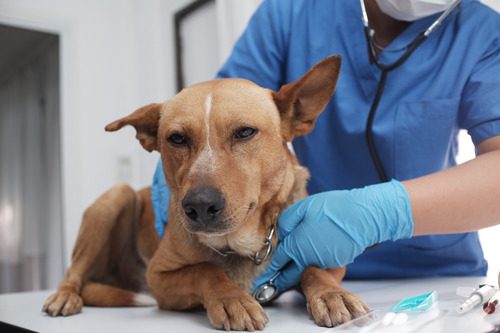My Dog Drank Antifreeze: What Do I Do
Accidents happen, and one of the most dangerous household substances your dog can encounter is antifreeze. If your dog drank antifreeze, immediate action is essential to safeguard their health. This blog will guide you through understanding the risks, recognizing symptoms, and taking the necessary steps to ensure your dog’s safety.

Understanding the Dangers of Antifreeze
Antifreeze, commonly used in vehicles to prevent engine freezing, contains ethylene glycol, a toxic compound. Even a small amount can be lethal to dogs, making it one of the most critical substances to keep out of their reach. Ethylene glycol is highly palatable to dogs due to its sweet taste, increasing the risk of accidental ingestion.
How Antifreeze Affects Dogs
When a dog drinks antifreeze, ethylene glycol is quickly absorbed into their bloodstream. The compound metabolizes into toxic substances that affect the central nervous system, kidneys, and other vital organs. The toxicity progresses through three stages:
- Stage 1: Neurological Symptoms
This stage occurs within 30 minutes to 12 hours of ingestion. Dogs may exhibit symptoms such as unsteady movement, lethargy, vomiting, and seizures. These symptoms often mimic intoxication. - Stage 2: Cardiopulmonary Symptoms
This stage occurs 12 to 24 hours post-ingestion and includes symptoms like rapid heart rate, increased breathing rate, and dehydration. - Stage 3: Kidney Failure
This stage occurs 24 to 72 hours after ingestion. Symptoms include severe lethargy, vomiting, oral ulcers, and ultimately, kidney failure, which can be fatal without prompt treatment.
Recognizing Symptoms of Antifreeze Poisoning
Identifying symptoms early can significantly impact the outcome. Here are key signs to watch for if you suspect your dog drank antifreeze:
- Staggering or disorientation
- Seizures
- Vomiting
- Loss of appetite
- Rapid heart rate
- Difficulty breathing
- Increased thirst and urination, progressing to decreased urination
Immediate Steps to Take If Your Dog Drank Antifreeze
Time is of the essence in cases of antifreeze poisoning. Follow these steps to give your dog the best chance of recovery:
- Seek Immediate Veterinary Care: Call Frontier Veterinary Urgent Care at 262-226-2055 immediately. Inform them of the situation so they can prepare for your arrival.
- Do Not Induce Vomiting: Avoid attempting to induce vomiting unless instructed by a veterinarian, as this can cause further harm.
- Keep Your Dog Calm: Minimize your dog’s activity to reduce the spread of toxins in their system.
- Collect Information: If possible, bring the antifreeze container to the veterinary clinic to provide details about the ingested substance.
Veterinary Treatment for Antifreeze Poisoning
Upon arrival at Frontier Veterinary Urgent Care, your dog will receive immediate and intensive care. Treatment options include:
Initial Assessment and Stabilization
The veterinary team will conduct a thorough assessment and can help stabilize your dog by administering IV fluids to support kidney function and correct dehydration.
Administering Antidotes
If detected early, antidotes such as fomepizole or ethanol may be administered to prevent the metabolism of ethylene glycol into toxic byproducts. These treatments are most effective when given within a few hours of ingestion.
Supportive Care
In addition to antidotes, your dog may require supportive care to address symptoms and prevent further complications. This may include:
- IV Fluids: To maintain hydration and support kidney function.
- Medications: To manage symptoms such as seizures and nausea.
- Monitoring: Continuous monitoring of vital signs and kidney function.
Preventing Antifreeze Poisoning in Dogs
Prevention is crucial in safeguarding your dog from antifreeze poisoning. Here are steps you can take:
- Keep antifreeze containers tightly sealed and stored in a secure location out of your dog’s reach.
- Consider using antifreeze products that contain propylene glycol, a safer alternative to ethylene glycol (however, in large enough doses, propylene glycol can also cause central nervous depression and lactic acidosis).
- Promptly clean up any antifreeze spills and dispose of contaminated materials properly.
- Keep a close eye on your dog when they are in areas where antifreeze may be present, such as garages or driveways.
Why Immediate Veterinary Attention is Critical
Prompt veterinary intervention is the key to preventing severe outcomes from antifreeze poisoning. Early treatment can drastically improve your dog’s prognosis. If you suspect your dog drank antifreeze, call Frontier Veterinary Urgent Care at 262-226-2055. Their team is equipped to provide the necessary care to help your dog recover.
Taking Proactive Measures for Your Dog’s Safety
Antifreeze poisoning is a serious threat to your dog’s health. By recognizing the symptoms, acting swiftly, and seeking immediate veterinary care, you can protect your dog from this life-threatening hazard. For any concerns or emergencies, contact Frontier Veterinary Urgent Care at 262-226-2055. Your dog’s well-being is their priority, and they are here to provide the support and care your dog needs.
